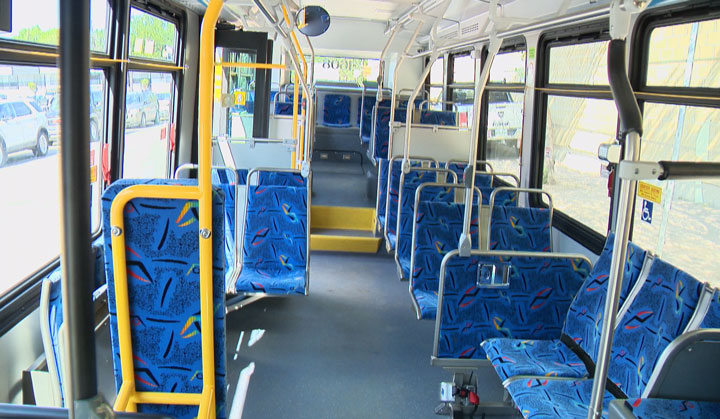City council voted on Monday afternoon to make non-medical masks mandatory on Saskatoon Transit.

The governance and priorities committee recommended masks be mandatory on public transit, and recommended in city-operated facilities and indoor services, beginning Tuesday, Sept. 1.
The matter stemmed from a report from the city’s administration, which recommended the measures to safely operate full-seated loads and meet demand on all fixed-route and Access Transit buses during the COVID-19 pandemic.
The report said ridership is likely to increase in the autumn, when students return to school and when the weather becomes cooler.
“As we move into the fall and schools open up, we’re going to have a lot of high school students using transit and people who are going returning to work using transit and in order to carry enough people on the bus to move people around and not have people left on the sidewalk,” Saskatoon Mayor Charlie Clark said on Monday morning.
“Masks give the ability to have more people on the bus and so that’s why it’s necessary that we take that step so we can also keep everybody riding the bus as safe as possible as well as our transit operators.”
The City of Saskatoon said it will focus on educating and informing the public of COVID-19 safety precautions and the use of non-medical face coverings as an additional safety precaution, rather than enforcement.

Get weekly health news
“We’re not going to be using a heavy, heavy enforcement model. We’ve been learning from other cities right across the country. We’re going to be handing out masks for the first two weeks to anybody who doesn’t have one and just working with people as they come on to figure out how to make sure they can get masks or if somebody really can’t wear a mask to make sure that we can accommodate and work with people,” Clark said.
“The goal is to get compliance up this as high as possible and what we’ve seen in other cities is over time, it gets to over 90 per cent just as people get used to it.”

Questions about COVID-19? Here are some things you need to know:
Symptoms can include fever, cough and difficulty breathing — very similar to a cold or flu. Some people can develop a more severe illness. People most at risk of this include older adults and people with severe chronic medical conditions like heart, lung or kidney disease. If you develop symptoms, contact public health authorities.
To prevent the virus from spreading, experts recommend frequent handwashing and coughing into your sleeve. They also recommend minimizing contact with others, staying home as much as possible and maintaining a distance of two metres from other people if you go out. In situations where you can’t keep a safe distance from others, public health officials recommend the use of a non-medical face mask or covering to prevent spreading the respiratory droplets that can carry the virus. In some provinces and municipalities across the country, masks or face coverings are now mandatory in indoor public spaces.
For full COVID-19 coverage from Global News, click here.




Comments
Want to discuss? Please read our Commenting Policy first.